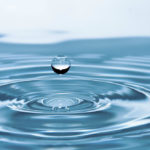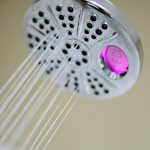Drinking water is inextricably linked to brain performance. More than 60% of an adult human body system is made up of water, and every function in the body, including the brain and nervous system functions, is dependent on optimal hydration in the body. Brain cells demand a dynamic equilibrium between water and different components to operate. If too much water is lost, the balance is altered. A shortage of water in the brain can affect short-term memory performance and long-term memory retention, as well as create a number of symptoms such as brain fog, weariness, headaches, sleep troubles, stress, irritability, and melancholy.
Moreover, the quality and safety of the water you drink, among many factors, also depends on the container where it is stored or contained. Most people use plastic jars and containers without knowing the health risks they may cause. Crystal Beverage Co. is a company that manufactures not only quality but also safe water bottles by utilizing aluminum material as a substance for making the water bottles. Unlike plastic materials, aluminum eliminates the chance of contamination in your water, thus increasing safety. Safe drinking water will not only increase your brain’s power but also keep it healthy and safe from contamination and viruses.
Water aids in blood circulation and food digestion, as well as the delivery and absorption of minerals and nutrients in the body, and it helps to limit variations in body temperature in a cold or warm environment. Drinking water can increase brain health by just actually increasing the flow of blood and oxygen to the brain, which enhances the ability to focus and cognition (promoting memory function) and helps stabilize emotions and feelings, decreasing the chances of stress and headaches. Since our brains do not really have any way to store water, dehydration can set in at any time, affecting the cognitive functioning of the brain.
In line with that, there are studies that find persistent dehydration shrinks gray matter in both weight and size, causing the brain to age prematurely. Even slight dehydration was considered to harm brain performance, while drinking water enhanced the respondents’ capability to accomplish tasks that required a quick response. As we age, our bodies experience physiological changes that increase our danger of becoming dehydrated. Our ability to perceive thirst deteriorates with age, just as our taste senses do. Water loss is also one of the leading causes of illness for some people. It is especially common in people living with Alzheimer’s disease and other brain disorders. Furthermore, it’s also very critical not to overlook the pace at which dehydration can happen. Going 4 to 8 hours without water can cause mild dehydration, while going 24 hours without water can cause severe dehydration.
The following are additional details on the benefits of drinking water for better brain function:
1. Water Improves Your Focus So You Can Think Better
Water facilitates communication between brain cells, removes waste and toxins that hinder brain function, and transports nutrients to the brain. If your water levels drop, everything falls apart.
Keeping yourself constantly hydrated has been associated with:
- Improved overall cognitive functioning, including increased attention, decreased confusion, and even enhanced learning
- Better brain test performance and better decision making
- Improved focus and short-term memory
- Better exam scores in a classroom setting
- Concentration is improved, and mental tiredness is reduced.
2. Water Helps You Sleep Faster And Deeper
It is about much more than catching extra sleep. Your brain cures itself, takes out poisons, and even produces new neurons as you sleep. As a result, getting adequate sleep may result in brain nutritional benefits.
Having a drink of extra water can aid in getting a better night’s sleep. The body’s fluid levels, especially water, affect your internal sleeping patterns, body temperature, hormones, metabolism, and many other systems associated with sleep wellness. On the contrary, as studies say, dehydration causes some people to have shorter sleep cycles.
3. Water Improves Your Mood And Overall Well-Being
Our body always demands adequate hydration to produce hormones and neurotransmitters such as dopamine and serotonin, which are essential chemicals that control our moods, as well as to guarantee that these neurotransmitters and chemical processes function properly. Various studies have already linked mild dehydration to considerably worsened mood, including decreased self-reported happiness and higher rates of melancholy and even anxiety.








